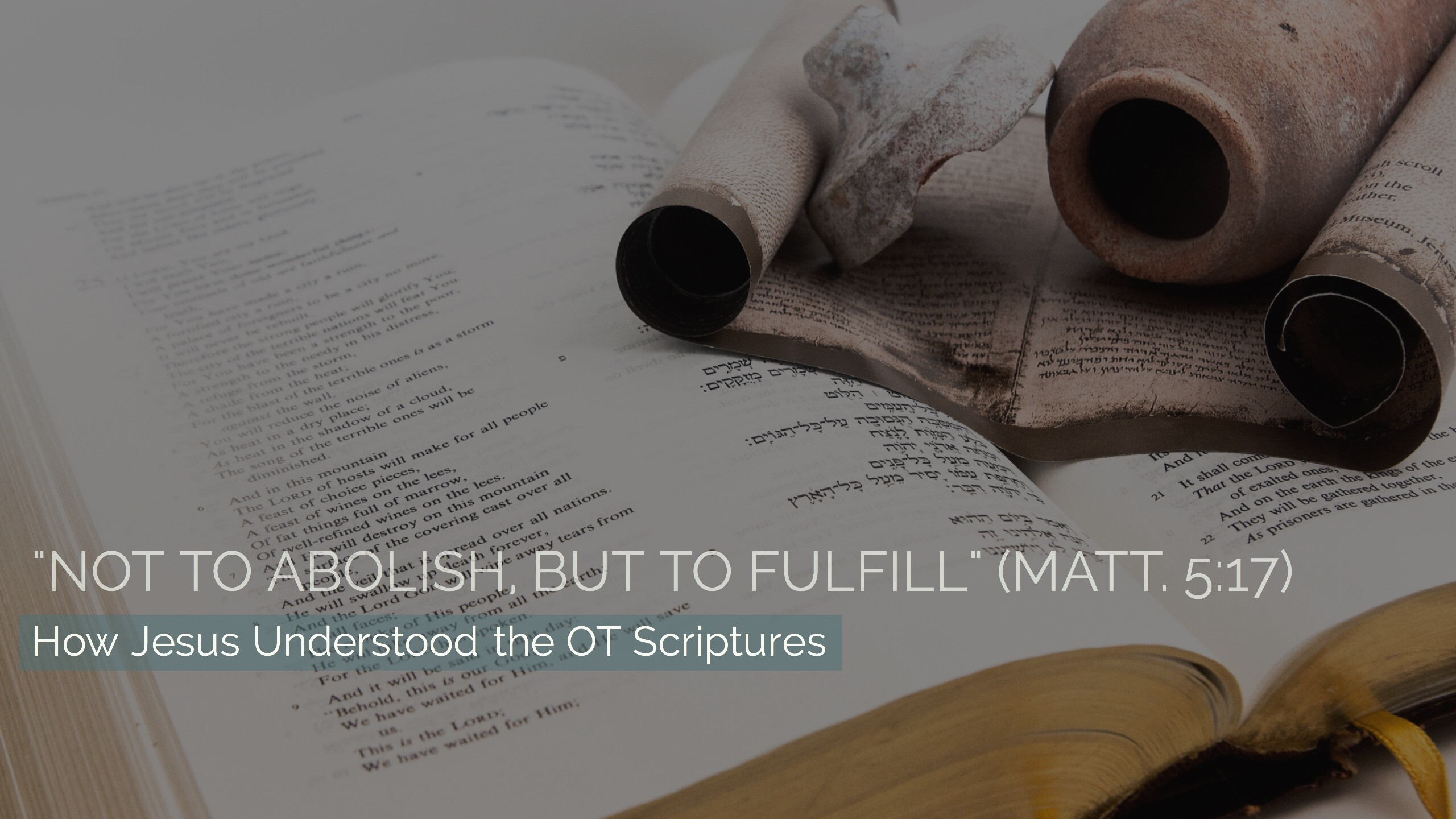In his first recorded sermon (Mathew 5-7), Jesus makes a remarkable statement that highlights his purpose for entering this world of humanity as the God-Man. He says, “Do not think that I came to abolish the Law or the Prophets; I did not come to abolish, but to fulfill” (NASB). The general tenor of this statement cannot be missed, and it is well-captured by Wilkins (p. 229), “Everything that the OT intended to communicate about God’s will . . . finds its fullest meaning in Jesus.” Therefore, we must carefully consider Jesus’s words and their implications for us today.
First, the statement is corrective in nature because it tells us how “not to think” about Jesus. This suggests that there was a danger of his listeners thinking inaccurately about Jesus’s life and preaching. Therefore, Jesus makes clear that whatever one may think about him, it must not be that he is conveniently setting aside the OT Scriptures (“Law and Prophets”) to accomplish his own private agenda.
Second, the statement is instructive because it makes clear Jesus’ understanding of the OT and his commitment to it (Wilkins, p. 227). Jesus uses the antithetical terms “abolish/fulfill” to make his ministry clear. On the one hand, he did not come “to abolish” the OT (i.e., pull to pieces as one does a bridge, wall or house; cf. 24:2; Broadus, p. 98); however, he did come “to fulfill” the OT or “confirm” it by bringing to completion all its prophetic declarations and assertions. As one commentator writes, “Jesus came in order that God’s Word may be fulfilled to its full measure in Him” (TDNT, 6:294). This idea is clearly important to Matthew because he consistently presents Jesus as “fulfilling” the OT in his Gospel (e.g., 12:17-21; 13:34-35; 21:1-5; 26:53-56). In fact, to highlight this reality, Matthew quotes the OT twice as often as the other Gospel writers (Nolland, p. 29).
Third, Jesus punctuates his thought of “abolish/fulfill” with four incisive applications:
1) Jesus views himself as the focus point of the OT prophecies (v 17). To put it another way, unless one accepts Jesus as the One to whom the OT Scriptures are pointing, he will miss God’s purpose for the OT (cf. 2 Cor 3:14).
2) Jesus affirms the durability of the OT even down to the smallest elements of a Hebrew term (v. 18). For Jesus, what the ancient writers predicted is permanent and must take place in him exactly as it was written.
3) Jesus cautions those who practice and teach that certain OT commands are inconsequential are actually misrepresenting God’s “unified voice of truth” which speaks of him. This has eternal consequence (v 19).
4) Jesus declares that “fulfillment of the Law” is more than an outward attention to detail – which the religious rulers of Jesus’ day demonstrated (cf. 12:1-8; 15:1-9) – but a personal responsiveness to truth that radiates from “a humble spirit” and “a pure heart” (5:1-12). This inner piety marks a righteous disciple and prepares him for entrance into the Kingdom of Heaven (v 20). It is to this end that the remainder of Jesus’ sermon is devoted.
This article is from the "Truth from the Agora" section of the Exposition, VBTS's monthly e-bulletin authored by President Daniel Davey. Click HERE to sign-up to receive the Exposition each month.

